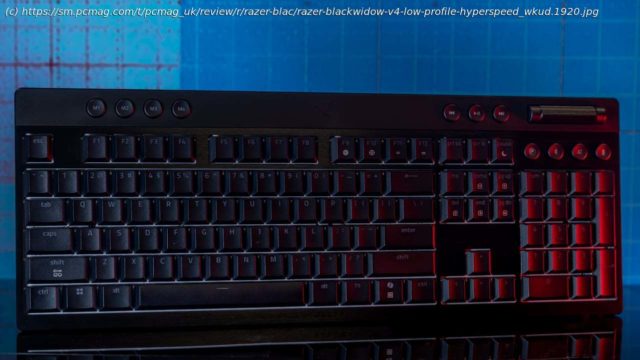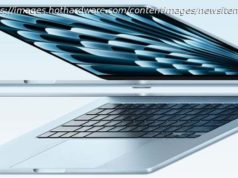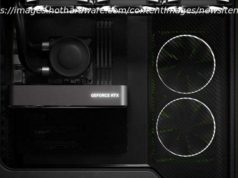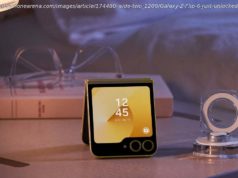A new variant of the venerable Razer BlackWidow with low-profile switches combines gaming prowess with some handy productivity features to make an impressive, if expensive, gaming keyboard.
Razer’s BlackWidow V4 75% and BlackWidow V4 75% Pro are two of our favorite gaming keyboards. They offer excellent performance, gorgeous RGB lighting, game-enhancing features, and hot-swappable key switches for those who want to dabble in DIY keyboard modding. They’re now joined by the BlackWidow V4 Low-Profile HyperSpeed ($229). It marks the debut of Razer’s low-profile mechanical switches, while keeping trademark features like HyperSpeed Wireless (and also, alas, Razer’s habitual high price). While the newcomer doesn’t top the other BlackWidows we’ve seen, it’s no slouch. Still, our favorite gaming keyboard remains the Editors’ Choice-winning BlackWidow V4 75% Pro.Design: Laying Low
The low-profile BlackWidow comes in two different flavors. In addition to the full-size keyboard (the subject of this review), Razer also offers a smaller TKL variant ($199), with the number pad lopped off. Design-wise, the new keyboard closely resembles the older BlackWidow V4 Pro, except that it’s far slimmer. The low-profile BlackWidow is 1.37 inches tall at its highest point, while the older BlackWidow V4 Pro comes in at 1.7 inches.
The keyboard feels sturdy and high-quality. From lubricated stabilizers to two sound-dampening foam layers beneath a stainless steel plate, the board’s components seem built to last. A large volume roller sits on the top right corner of the board, near four dedicated macro buttons and a few other function controls (which we’ll explore later in the review).
This is one of the lowest-profile gaming keyboards we’ve seen in PC Labs, though it’s not the first. Corsair attempted a low-profile wireless design a few years back with the Corsair K100 Air Wireless, which is even more expensive than the BlackWidow (if you can believe it) and has a height of just 0.67 inch. In my analysis of the Corsair, the biggest issue was the uncomfortable low-profile keys.






